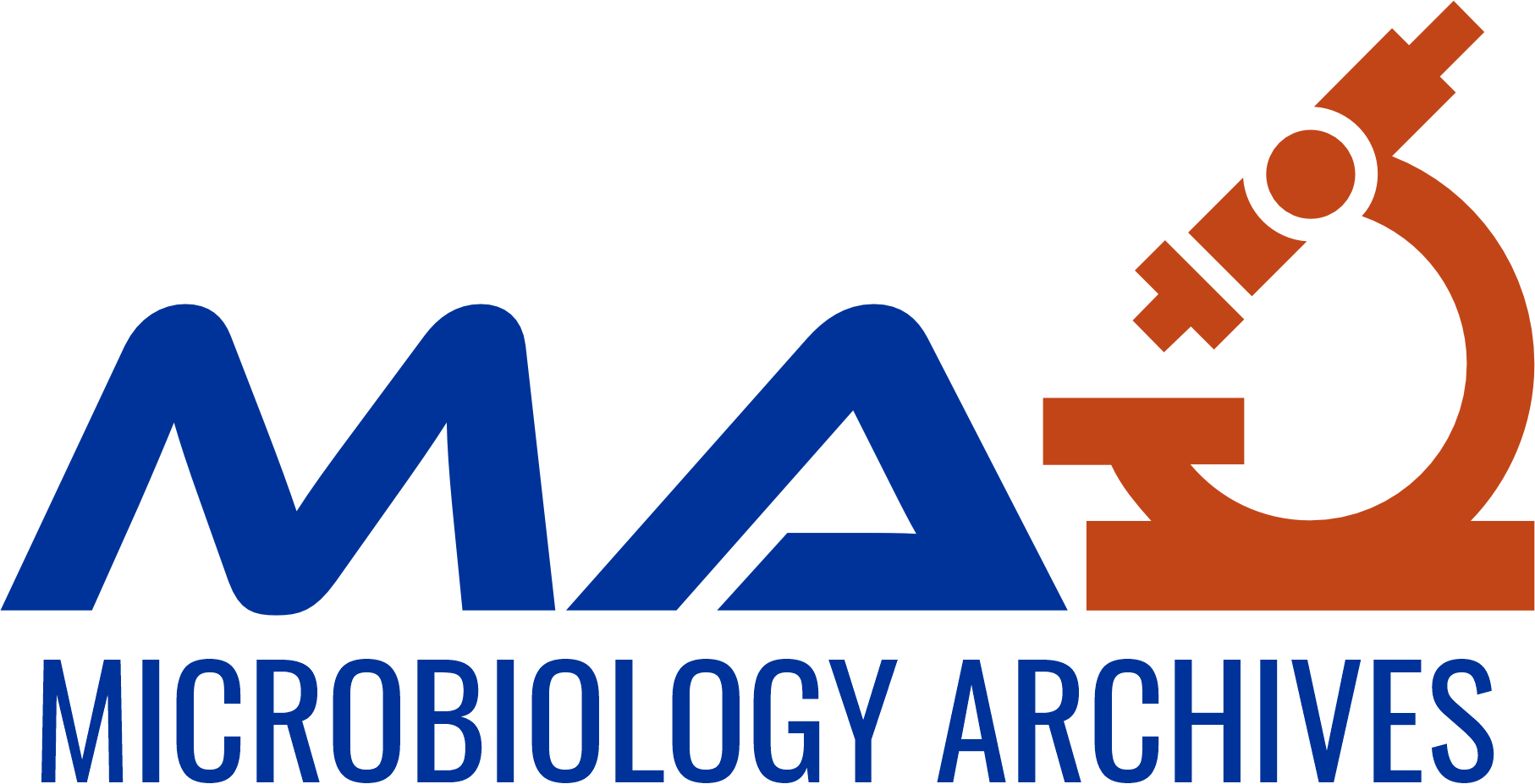Author's Guidelines
Welcome to Microbiology Archives: An International Journal! We are delighted that you are considering submitting your research for publication. To facilitate a smooth submission process and ensure the quality of our journal, please adhere to the following guidelines:
1. Manuscript Types
We accept the following manuscript categories:
Original Research Articles: Comprehensive reports on original research findings that contribute new knowledge to the field of microbiology.
Review Articles: In-depth analyses that summarize current research on specific microbiological topics, highlighting recent advances and future directions.
Short Communications: Brief reports presenting significant research findings or innovative methodologies that may not require a full-length article.
Case Reports: Descriptive accounts of unique or novel cases that provide insights into microbiological phenomena, emphasizing the relevance of the findings to broader scientific knowledge.
Technical Notes: Concise descriptions of new methods, techniques, or innovations in microbiology that can enhance research practices.
Explanation: This section clarifies the types of submissions that the journal accepts, helping authors determine the appropriate category for their work.
2. Manuscript Format
All manuscripts must adhere to the following formatting guidelines:
File Format: Submit manuscripts in Microsoft Word format (.doc or .docx) to ensure compatibility during the review process.
Font and Size: Use a standard font (e.g., Times New Roman) in size 12 for legibility, with double spacing to allow for comments and revisions.
Margins: Set margins to 1 inch (2.54 cm) on all sides to provide adequate white space for readability.
Page Numbers: Number all pages consecutively, starting with the title page, to facilitate the review and editing process.
Explanation: These formatting requirements ensure that all submissions are uniform and easy to read, streamlining the review process.
3. Structure of the Manuscript
The manuscript should include the following sections:
Title Page: The title should be descriptive and concise, followed by authors’ names, affiliations, and the corresponding author’s email address, along with a short running title (not exceeding 50 characters).
Abstract: A concise summary (maximum 250 words) that captures the study’s objectives, methods, results, and conclusions.
Keywords: Provide 4-6 keywords that encapsulate the main topics of the manuscript, enhancing discoverability.
Introduction: Outline the background of the study, its significance, and objectives, situating the research within the current scientific context.
Materials and Methods: Detailed enough to allow replication, this section should include experimental design, materials, and analytical techniques.
Results: Present the findings clearly, using tables and figures for clarity where appropriate.
Discussion: Interpret the results, exploring their implications and relevance to the field of microbiology.
Conclusion: Summarize the main findings and their significance in a broader context.
Acknowledgments: Recognize individuals or organizations that contributed to the research but do not meet authorship criteria.
References: List all references in APA style, ensuring completeness and accuracy.
Explanation: This structured approach allows reviewers and readers to navigate the manuscript easily, facilitating comprehension and critical assessment.
4. Figures and Tables
Numbering: Figures and tables should be numbered consecutively (e.g., Figure 1, Table 1).
Legends: Each figure and table should include a descriptive caption to clarify its content.
Quality: Ensure that images and graphics are high quality and suitable for publication.
Explanation: Clear labeling and high-quality visuals enhance the manuscript’s clarity and professionalism, making findings more accessible to readers.
5. Ethical Considerations
Compliance: Authors must adhere to ethical standards for research, including obtaining necessary approvals for studies involving human or animal subjects.
Conflict of Interest: Authors should disclose any potential conflicts of interest related to the study, ensuring transparency.
Plagiarism: Manuscripts must be original and free from plagiarism. Authors are encouraged to use plagiarism detection tools prior to submission.
Explanation: Upholding ethical standards is critical to maintaining the integrity of scientific research and ensuring that authors take responsibility for their work.
6. Submission Process
Online Submission: All manuscripts must be submitted via our online submission system. Authors should follow the prompts to create an account and upload their manuscripts.
Review Process: Each manuscript undergoes a rigorous peer-review process to ensure quality and relevance. Authors will receive notifications regarding the status of their submission.
Explanation: This section informs authors of the practical steps required for submission and highlights the importance of the peer-review process in maintaining scientific standards.
7. Publication Fees
Authors may be required to pay publication fees upon acceptance of their manuscript. Detailed information regarding these fees will be provided during the submission process.
Explanation: Transparency regarding publication fees helps authors prepare financially and understand any costs associated with publication.
8. Post-Acceptance
Proofreading: Authors will receive a proof of their article for review prior to publication. Corrections must be returned promptly to facilitate timely publication.
Copyright Agreement: Authors must sign a copyright agreement, transferring copyright to the journal upon publication.
Explanation: These procedures ensure that authors have the opportunity to review their work before it is published and clarify the ownership of published content.
9. Contact Information
For any inquiries related to manuscript submission or author guidelines, please contact us at [insert email address].
Explanation: Providing contact information facilitates communication between authors and the journal, enhancing the submission experience.
By following these guidelines, authors can help ensure a smooth and efficient review and publication process. We look forward to your valuable contributions to Microbiology Archives: An International Journal!
—
Feel free to adjust or expand on any section to fit your journal’s specific needs or policies!
Preparation of Manuscript
Manuscripts must be typed in English, double-spaced, on A4-sized paper (8.5″ x 11″) with 1″ margins, using 12 Times New Roman font.
Title Page
The title page should include:
- A concise title
- Author names and affiliations
- Corresponding author’s contact details
- Indication of the manuscript’s subject area (e.g., Environmental Science, Climate Change).
Structure
Manuscripts should be organized into clearly defined sections, including:
1. Abstract (max 200 words)
2. Keywords
3. Introduction
4. Materials and Methods
5. Results and Discussion
6. Conclusion
7. Acknowledgments
8. References
Authorship and Acknowledgements
All authors must meet the ICMJE criteria for authorship, ensuring substantial contributions to the work. An Authorship Contribution Form must be submitted with the manuscript.
Acknowledgments should include any supporting grants or contributions from non-authors.
Conflicts of Interest
Authors must disclose any potential conflicts of interest related to the manuscript. A Conflict of Interest form must be submitted alongside the manuscript.
Funding Sources
Authors should declare all funding sources relevant to their research, including grant numbers and funder roles.
Originality and Plagiarism
All submissions will be screened for originality. Proper citations must be provided for any work or ideas derived from other sources.
Reporting Standards
Authors must present accurate data and provide sufficient detail to ensure reproducibility of their research.
Data Access and Retention
Authors should retain data for a reasonable time post-publication and may be asked to provide raw data upon request.
Ethical Approvals
Studies involving human or animal subjects must have obtained appropriate ethical approval, with details provided in the manuscript.
Join us in our efforts to shape a sustainable future through research and innovation.








